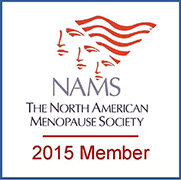Frequently Asked Questions
What is Cognitive Behavioural Therapy?
Cognitive behavioural therapy (CBT) is a low-risk, psychological treatment approach that was initially used to treat the emotional symptoms of depression and anxiety. CBT aims to challenge and change destructive thoughts, negative beliefs, and problematic behaviours into positive thought patterns that will help you respond to your symptoms in a productive way. Research has shown that this same approach can be highly effective in treating your symptoms of menopause such as:
• Hot flashes
• Night sweats
• Insomnia
• Depression
• Anxiety
*Studies show that CBT produces high satisfaction rates in symptom management
Is CBT right for me?
CBT is recommended for people who:
• Can be used alongside medical management
• Have been recommended not to use medical treatments
• Are not satisfied with the effectiveness of medical treatment
• Have severe symptoms despite using other treatments
• Prefer self-management techniques over medication
What can I expect to from CBT?
• Gain knowledge about menopause
• Learn techniques for:
Relaxation
Coping
Resilience
Stress management
Assertiveness
• Identify maladaptive behaviours
• Reshape these behaviours
• Confidentiality from the therapist
How can I get started?
1. Purchase “The Cognitive Behavioural Workbook for Menopause” by Sheryl Green, Randi McCabe, and Claudio Soares, 2012. This self-help book will take you through a step-by-step guide of how to change your thought patterns and help give you immediate relief with the symptoms you are struggling with most.
2. Ask your doctor to recommend a CBT therapist.
3. Check to see if the cost is covered under your third party health plan, your Employee Assistance Plan or other employee benefits plan, etc.
References
Green, S., Haber, E., McCabe, R., & Soares, C. (2013). Cognitive-behavioral group treatment for menopausal symptoms: a pilot study. Archives Of Women's Mental Health, 16(4), 325-332 8p. doi:10.1007/s00737-013-0339-x
Green, S., McCabe, R., & Soares, C. (2012). The cognitive behavioural workbook for menopause. A step by step guide for overcoming hot flashes, mood swings, insomnia, anxiety, depression, and other symptoms. Oakland, CA: New Harbinger Publications, Inc.
Hunter, M., Coventry, S., Hamed, H., Fentiman, I., & Grunfeld, E. (2009). Evaluation of a group cognitive behavioural intervention for women suffering from menopausal symptoms following breast cancer treatment. Psycho-Oncology, 18(5), 560-563 4p. doi:10.1002/pon.1414
North American Menopause Society (2015). Nonhormonal management of menopause-associated vasomotor symptoms: 2015 position statement of The North American Menopause Society. Menopause, 22(11), 1155-1174. doi:10.1097/GME.0000000000000546
Created by Katie Cotter for:
The Women’s Mid-life Health Program
Saskatchewan Collaborative Bachelor of Science in Nursing. March 2016
Improving Women's Lives Through Better Health in Mid-Life and Beyond


